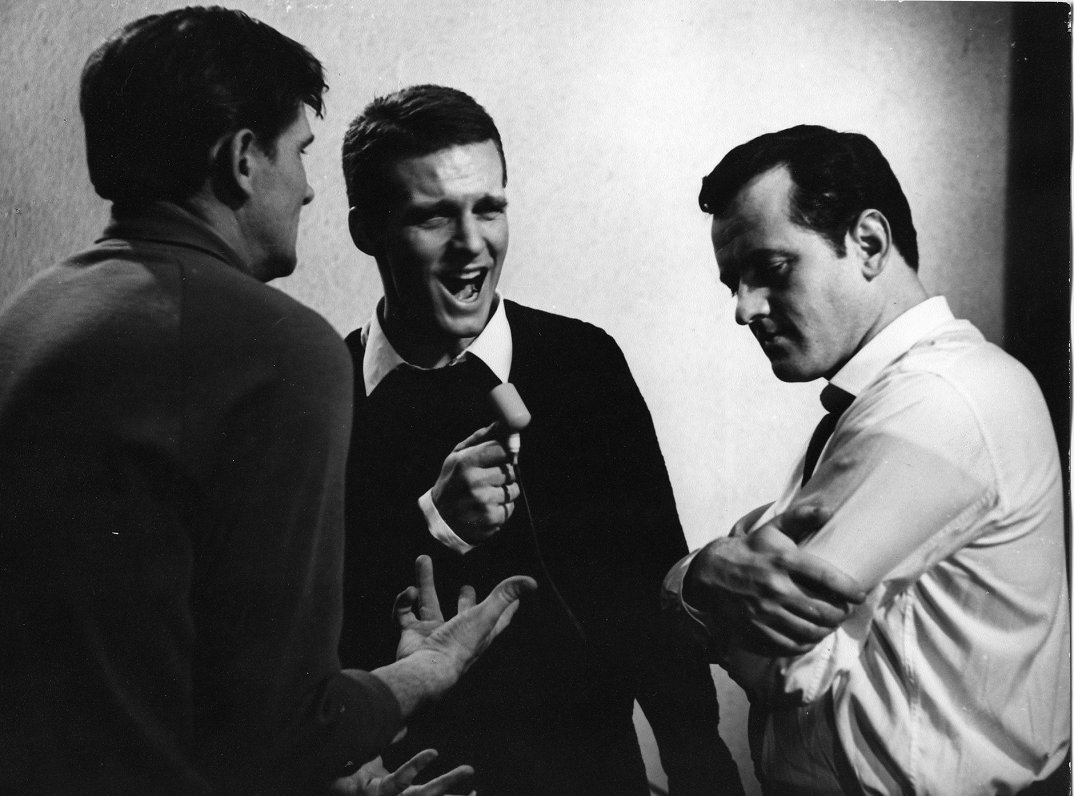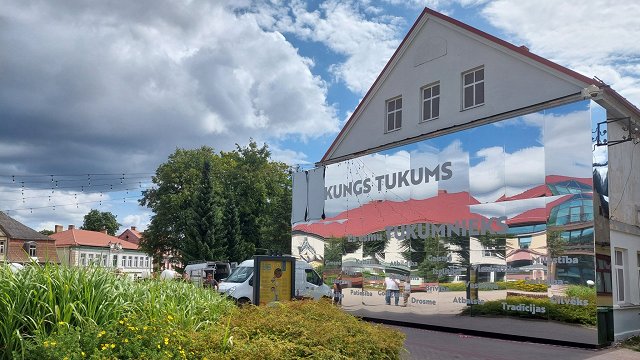Four White Shirts tells the story of phone repairman Cēzars Kalniņš (played by Uldis Pūcītis, an idol of vulnerable masculinity), who is part of the Optimisti ensemble with his friends. They apply to obtain permission to perform publicly from the Soviet censors. Initially, culture committee member Anita Sondore – played by deep and intelligent Dina Kuple – criticizes their songs, only to develop some sympathy for Cēzars later on. But the wheels of censorship have started turning and won't slow down.
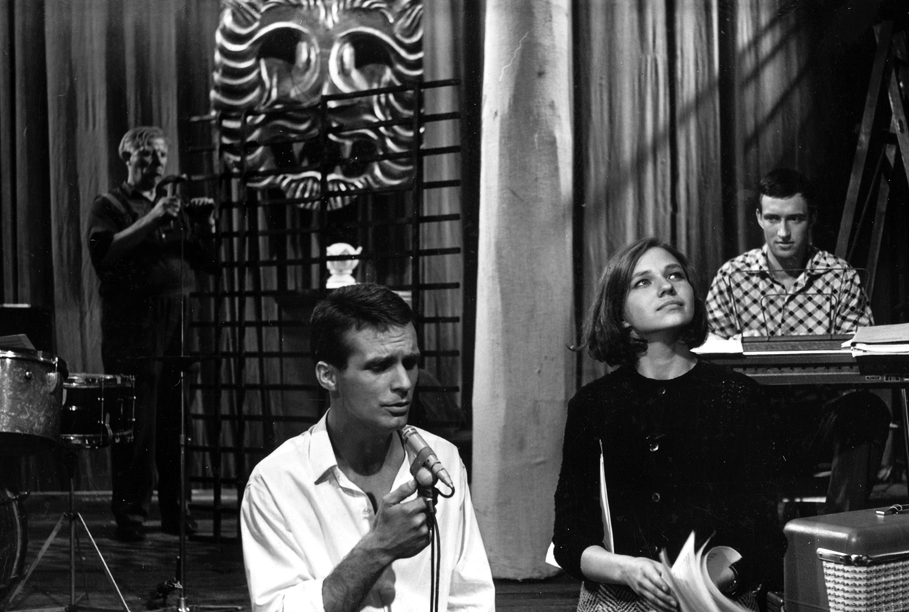
Sadly enough, the film's events predict those of its authors. Even though Four White Shirts was never banned officially, it was initially pulled for a while. This was, however, to last for almost twenty more years, until the film was premiered in 1986 under the title Breathe Deeply (Elpojiet dziļi). All the while, Priede's play – named thusly as it was the 13th play he wrote – was staged in Latvian theaters.
The film is supposed to have been pulled due to a scene depicting a meeting of the artistic committee, not found in the play.
The filmmakers had succeeded in depicting the office of the Central Committee boss with a much too uncanny precision, and they were further reproached for offending the participants of the Great Patriotic War, as a member of the committee was seen to be wearing military ribbons. The censors were not ready to see themselves as part of the Soviet absurd. The scene likewise toyed around with the use of the bureaucratese expression, "there is an opinion that".
Film critic Dita Rietuma has named Four White Shirts the all-time best Latvian film. The 1960s are associated with hippies, Woodstock, The Beatles and most of all with a hunger for freedom. Rolands Kalniņš was able to depict it, and this puts him alongside such names as Godard, Truffaut, Věra Chytilová, Andrzej Wajda and others.
The film is a breath of fresh air in Latvian cinema, the first piece to address what a young person feels upon entering the world of grown-ups.
Cinematographer Miks Zvirbulis did much to make the movie a success, framing shots with a seemingly easy and simple elegance, while at the same time documenting the city of Rīga as it was back then. It features shots with such lost phenomena as the St. Peter's Church sans the steeple, the Pontoon bridge over Daugava River, the Great Cemetery surrounded by a fence as well as the Ķīpsala neighborhood without the Press House. In accordance with New Wave cinema, local bohemian personalities are present in the film as well, such as artist Jāzeps Pīgoznis, composer Imants Kalniņš, poet Viks, director Oļģerts Kroders and others.
It likewise stands out among Latvian movies in that music is an integral part of the dramatic material.
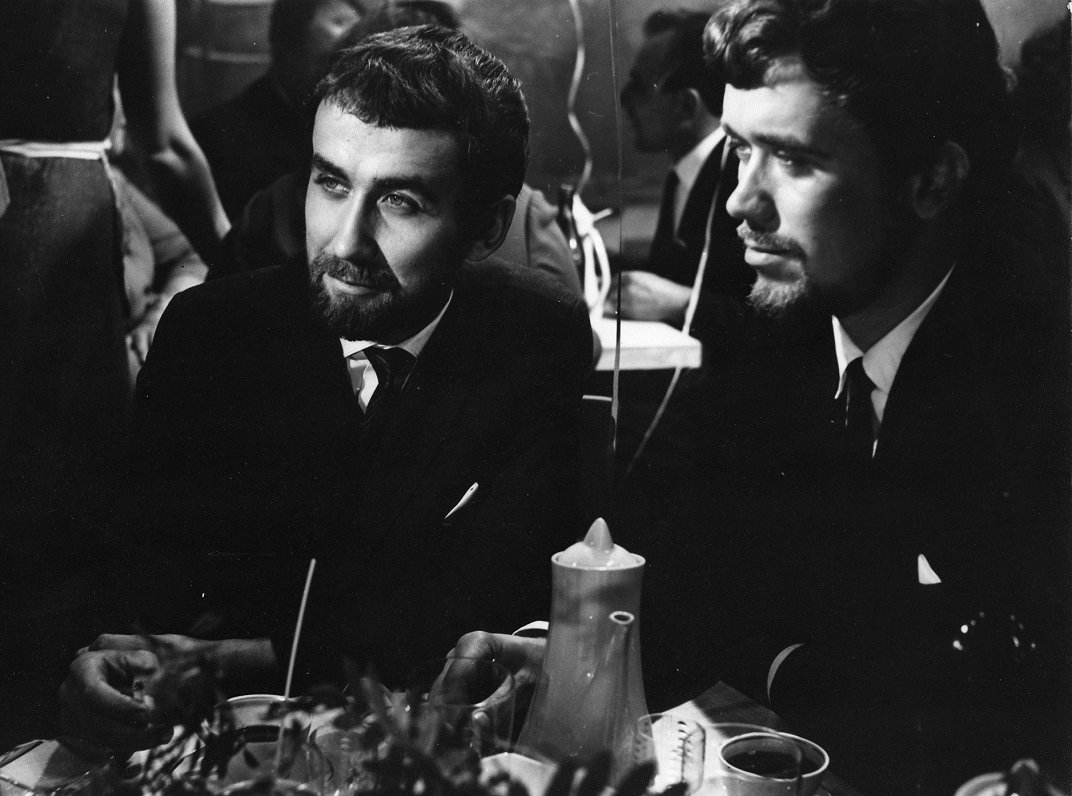
A contest was set up to find a composer for the film, with Imants Kalniņš the winner. He wrote seven songs for the film, with lyrics by poet Māris Čaklais. And these songs went on to become classics in their own right. Initially performed by bands from Liepāja port town, namely Santa and 2xBBM, the songs were later picked up by the famous Menuets ensemble. The songs Dzeguzes balss and Cik mēs viens par otru zinām, performed by Uldis Pūcītis in the film, were actually sung by actor Juris Strenga. Cēzars' girlfriend Bella was portrayed by young actress Līga Liepiņa. It was her silver screen debut, and she went on to star in Rolands Kalniņš' consecutive films.
Soviet censors likewise banned Kalniņš' Akmens un šķembas (1966), a film about Latvian legionnaires in the Second World War, from being screened, and then barred the director from completing the film Piejūras klimats. In 2017, the film was restored on the occasion of its 50th anniversary.
In 2018, it was screened at the Cannes Festival at the Cannes Classics program. It was met with standing ovations. A by-now elderly Kalniņš and Miks Zvirbulis were in France for this moment.
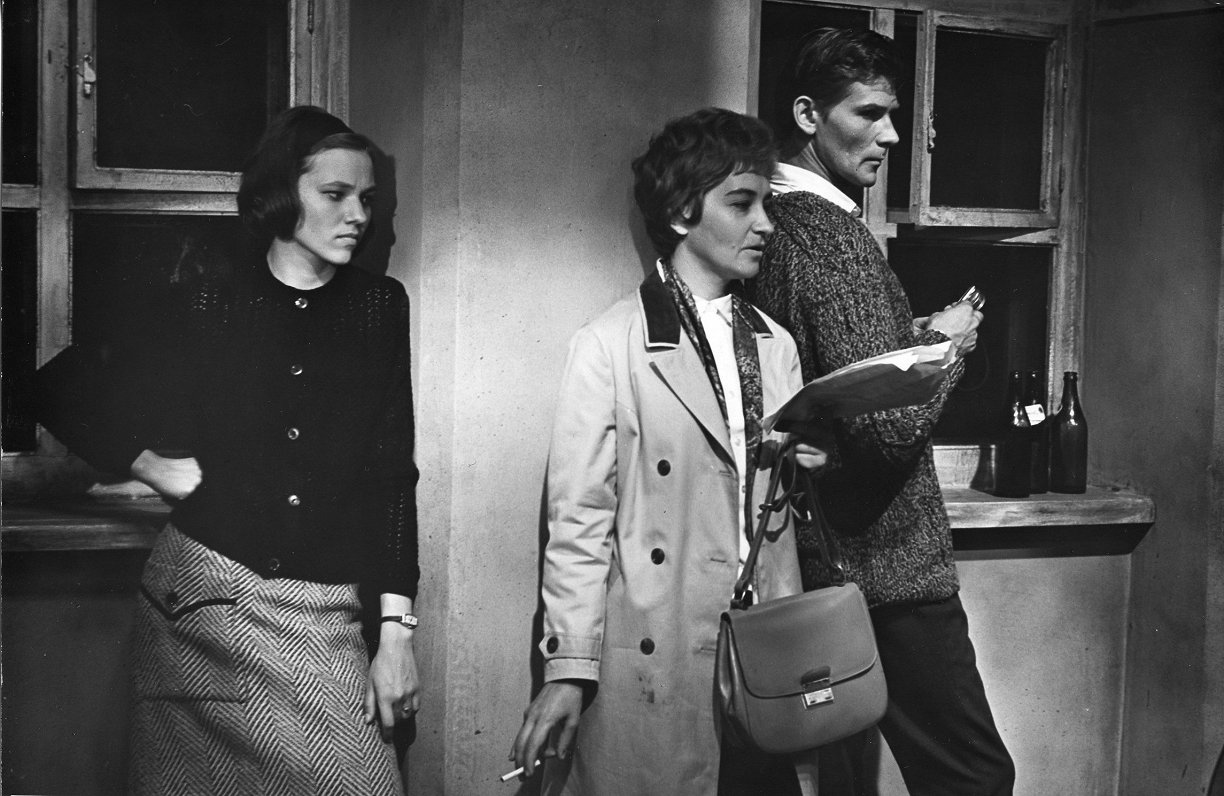
If you would like to watch the whole film, you can do so at the National Cinema Center's online archive of classsic Latvian films.
